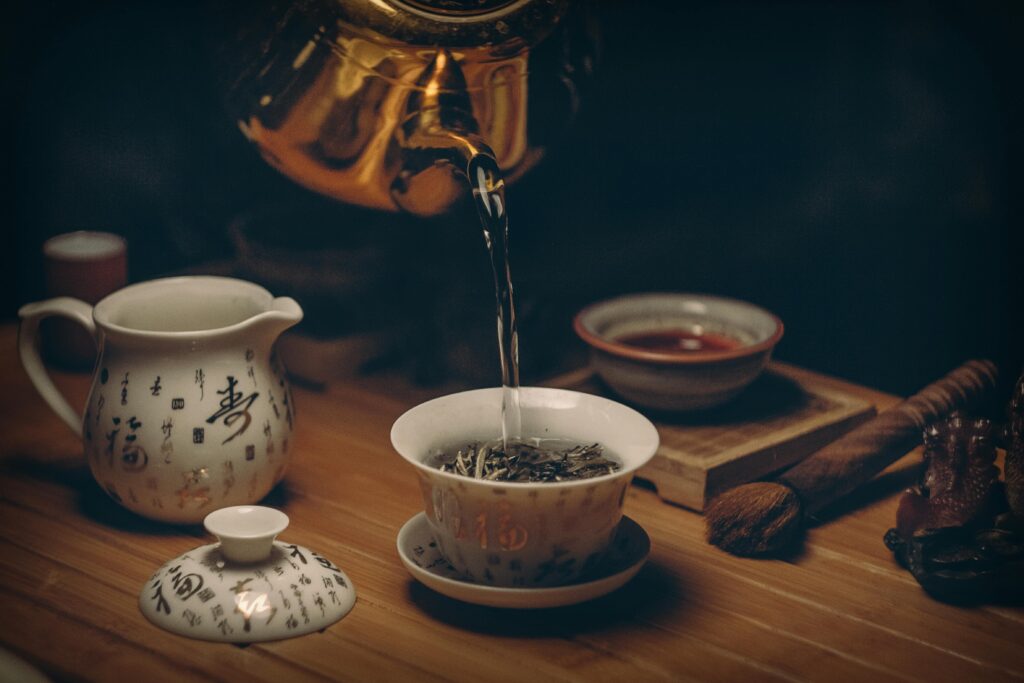For centuries, Chinese tea has been more than just a beverage—it’s a ritual, a lifestyle, and a natural way to support well-being. With a variety of tea types like green, black, oolong, white, dark (commonly known as fermented or “black” tea in Chinese), yellow tea, and floral teas, Chinese tea culture is rich in both flavor and function. While different teas offer distinct benefits, all share a few common effects that support overall health.
General Health Benefits of Tea
Across all varieties, Chinese tea is a natural source of antioxidants, essential nutrients, and bioactive compounds. When enjoyed in moderation, tea can support:
1. Nutrient Intake and Antioxidant Support
Tea contains tea polyphenols (like catechins), vitamins (especially C and B groups), minerals (such as potassium, calcium, magnesium), and amino acids like theanine. Among them, tea polyphenols are powerful antioxidants that help neutralize free radicals, slow down cellular aging, and enhance immune defense.
2. Improved Metabolism and Digestion
The caffeine and theobromine in tea stimulate the central nervous system, which can elevate your metabolism and relieve fatigue. Fermented teas like dark tea (e.g., Pu-erh) and oolong are particularly rich in enzymes and beneficial bacteria that aid digestion and promote regular bowel movements.
3. Cardiovascular Support
Long-term, moderate tea consumption has been linked to improved blood lipid profiles—reducing total cholesterol and triglycerides—and preventing platelet aggregation. These effects can help reduce the risk of arteriosclerosis and cardiovascular disease. Green tea’s catechins and black tea’s theaflavins play key roles here.
4. Mental Clarity and Emotional Balance
Tea’s caffeine sharpens mental alertness and focus, while theanine has a calming, stress-relieving effect. The combination offers gentle stimulation without the jitteriness of coffee—helping to boost concentration while promoting emotional ease.
5. Weight Management Support
The synergistic effect of caffeine and tea polyphenols helps break down fat, curb fat absorption, and slightly increase calorie burn, making tea a supportive choice for those managing their weight—especially when paired with a healthy diet and regular movement.
6. Other Potential Benefits
Emerging research suggests that tea may help protect teeth (due to fluoride content), regulate blood sugar levels by slowing sugar absorption, and possibly lower the risk of certain chronic diseases—including some types of cancer. While promising, these effects require further scientific validation.
Important Tips for Drinking Tea Safely
- Moderation is key: Around 3–5 grams of tea leaves per day is a reasonable amount.
- Watch your timing: Avoid strong tea before bed. Those with ulcers, anemia, insomnia, or during pregnancy should limit intake.
- Tea isn’t medicine: While beneficial, it’s not a substitute for professional medical treatment.
- Match your tea to your body: For example, people with cold constitutions might prefer black or fermented teas, while those prone to heat may feel better with green tea.
Exploring the Major Types of Chinese Tea and Their Effects
Green Tea
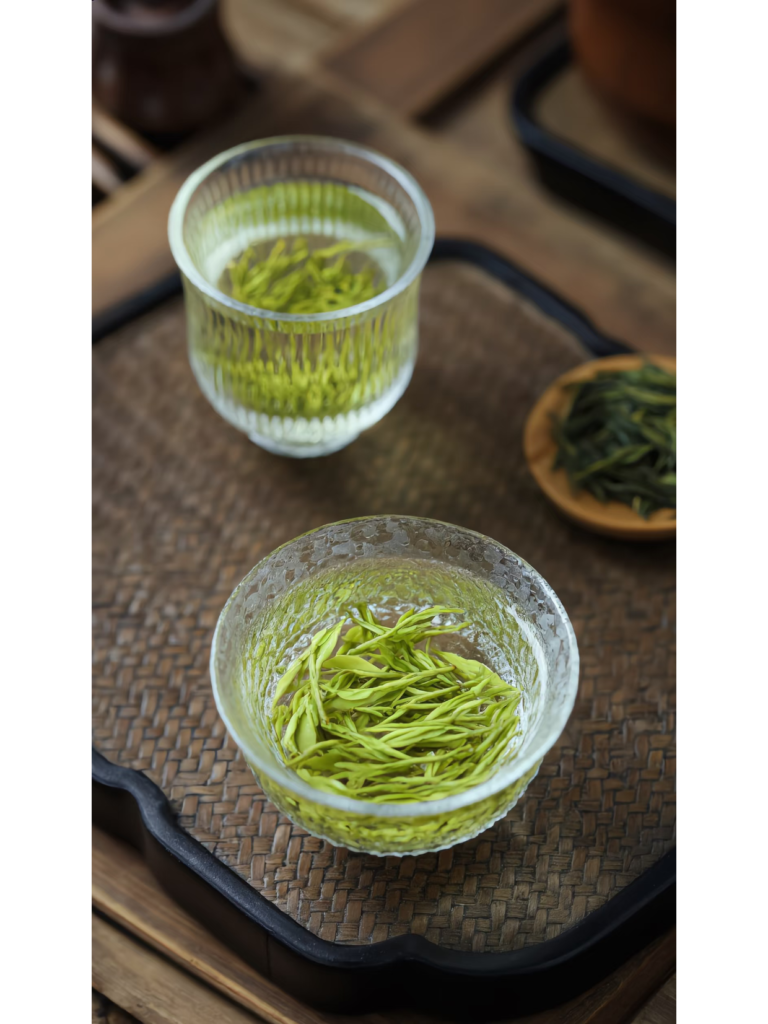
Light, refreshing, and unfermented, green tea retains high levels of polyphenols and vitamins.
- Antioxidant & anti-radiation: Helps clear free radicals and protect from screen exposure.
- Anti-inflammatory & antibacterial: May help prevent infections and soothe inflammation.
- Boosts alertness: Natural caffeine enhances focus.
- Supports fat metabolism: Catechins aid in fat breakdown and may assist in weight control.
- Oral & eye health: Fluoride and polyphenols help prevent cavities and may protect vision.
Black Tea (Red Tea in Chinese)
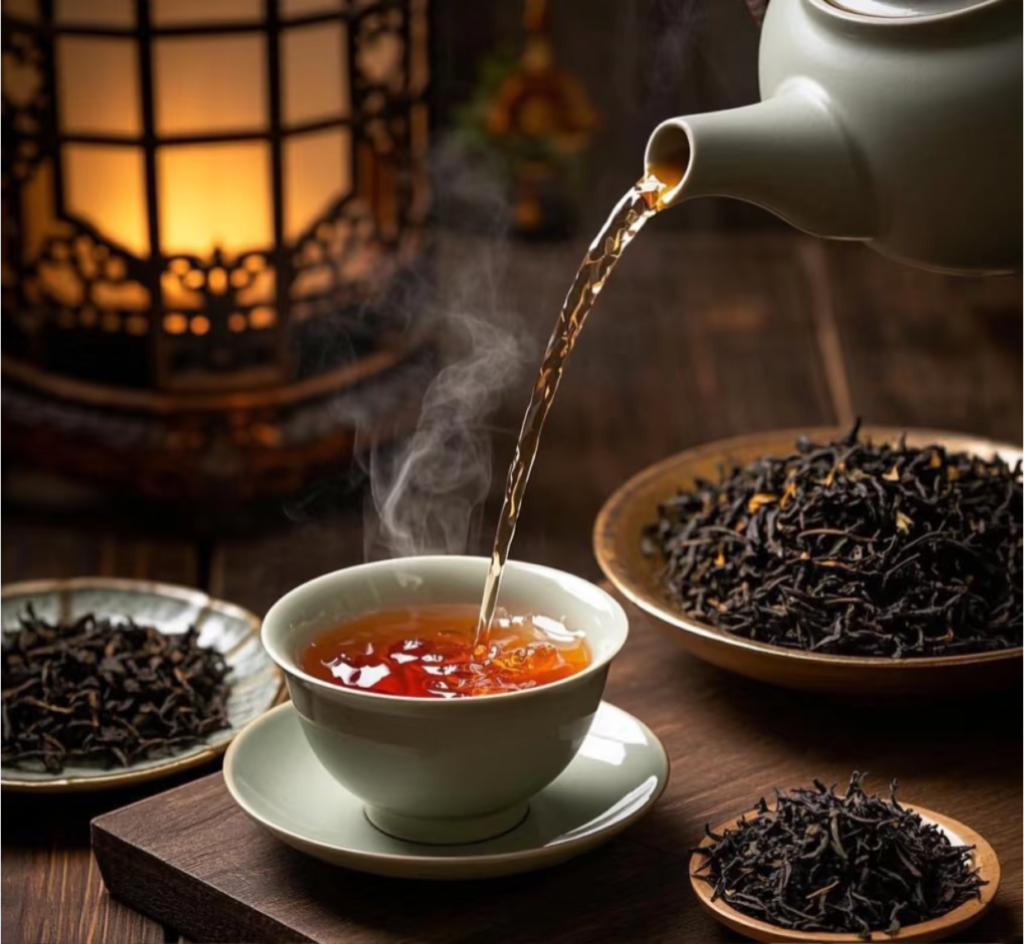
Fully fermented, black tea is warming and gentle on the stomach.
- Stomach-soothing: Fermentation produces compounds that protect gastric lining, ideal for those with weak digestion.
- Energizing: Caffeine enhances blood flow and reduces fatigue.
- Anti-aging: Antioxidants support skin and heart health.
- Diuretic: High in potassium, which promotes fluid balance and reduces swelling.
Dark Tea (e.g., Pu-erh)
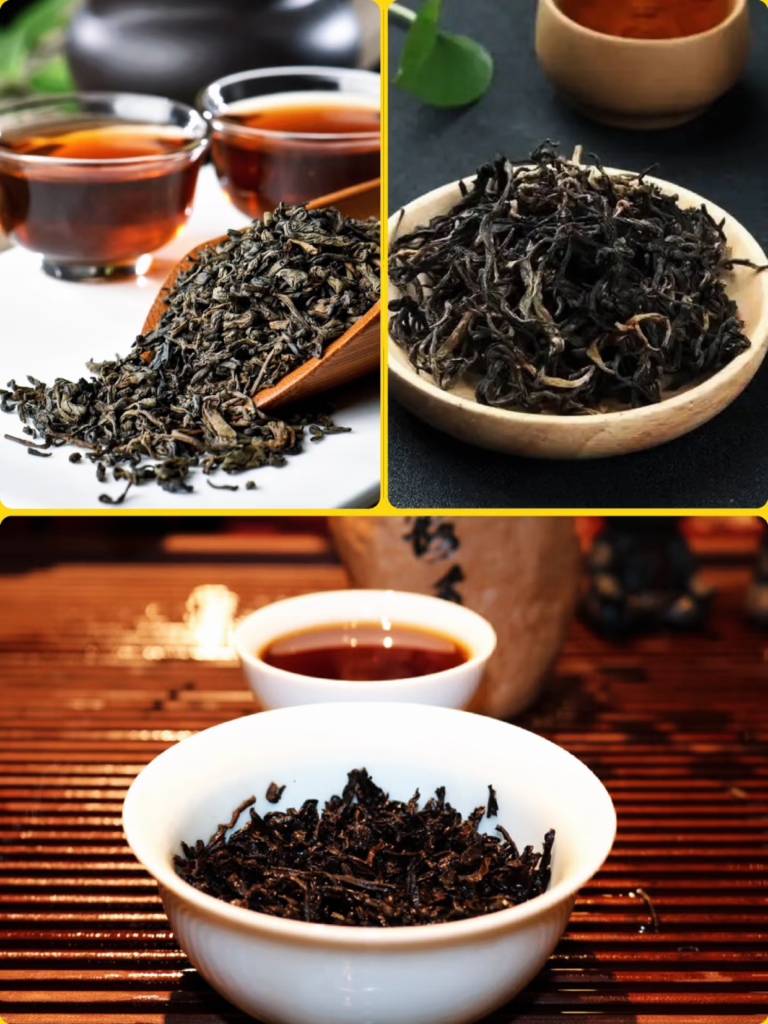
Post-fermented, dark teas are known for their rich, earthy flavor and gut-friendly properties.
- Digestive aid: Enzymes and probiotics help break down rich foods.
- Cholesterol & blood pressure support: May help lower both with regular use.
- Gentle on the gut: Ideal for those with sensitive digestion.
White Tea
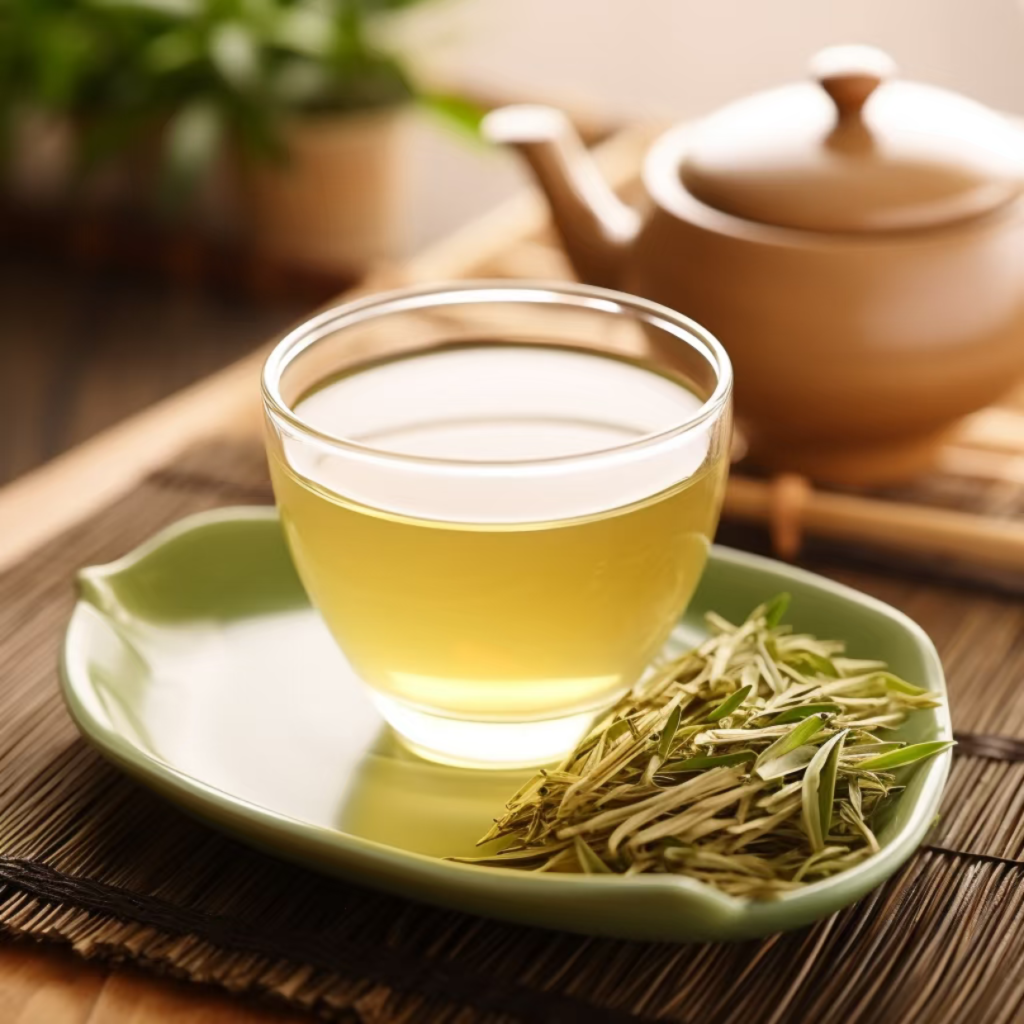
Minimally processed, white tea is delicate and cooling.
- Relaxing: Known for calming nerves and improving sleep.
- Cooling & detoxifying: Clears internal heat, great for hot weather.
- Blood sugar regulation: Gentle support for those with elevated blood sugar.
Oolong Tea
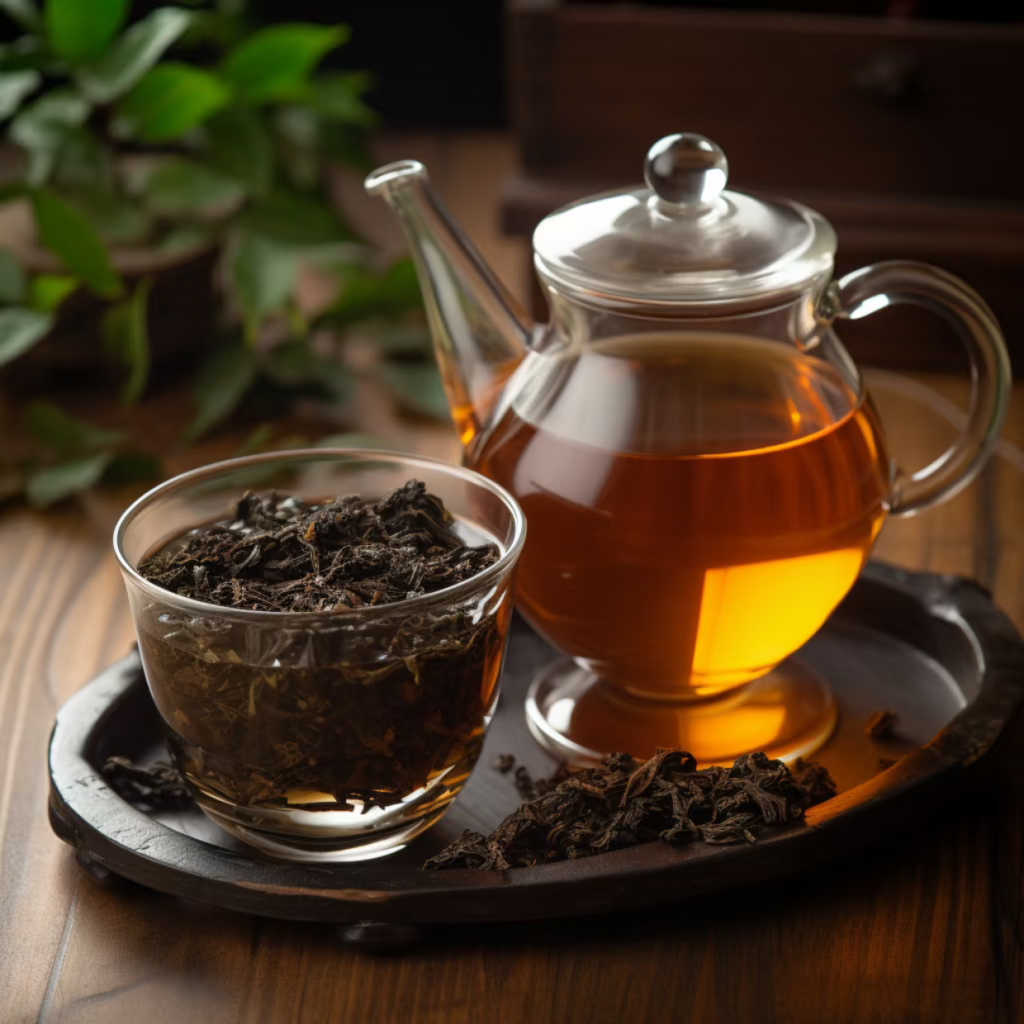
Semi-fermented, oolong bridges the gap between green and black teas, with complex aromas.
- Fat-burning & slimming: Supports weight management through enhanced fat metabolism.
- Digestive support: Helps ease bloating and supports regularity.
- Mental boost: Caffeine keeps you alert without over-stimulation.
Yellow Tea

Lightly fermented and rare, yellow tea is smooth, mellow, and gentle on the stomach.
- Stomach support: Eases digestive discomfort and bloating.
- Anti-aging: Antioxidant properties similar to green tea.
- Appetite stimulant: Encourages better appetite in those who need it.
Reprocessed Teas (e.g., Floral Teas)
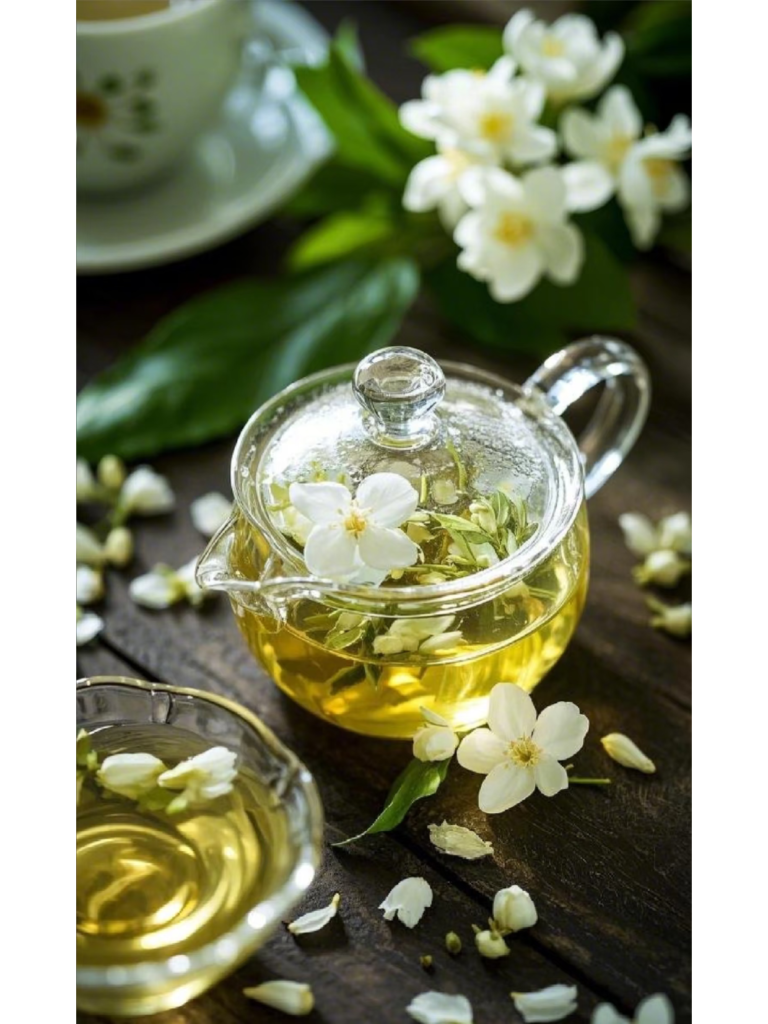
Floral teas are often blended with a base tea and flowers such as jasmine, rose, or chrysanthemum.
- Beauty-enhancing: Rose tea is rich in vitamin C, supporting skin brightness.
- Mood-lifting: The scent of jasmine or rose can calm the mind and ease tension.
- Targeted benefits: Blends like chrysanthemum Pu-erh may help reduce heat and support liver function.
Final Thought
Chinese tea is not just a drink—it’s a gentle companion in your daily wellness routine. Whether you’re sipping green tea for its antioxidants, Pu-erh for digestive balance, or jasmine tea for emotional ease, choosing the right tea for your body can make a real difference. Listen to your body, sip with intention, and let each cup nourish you from within.
